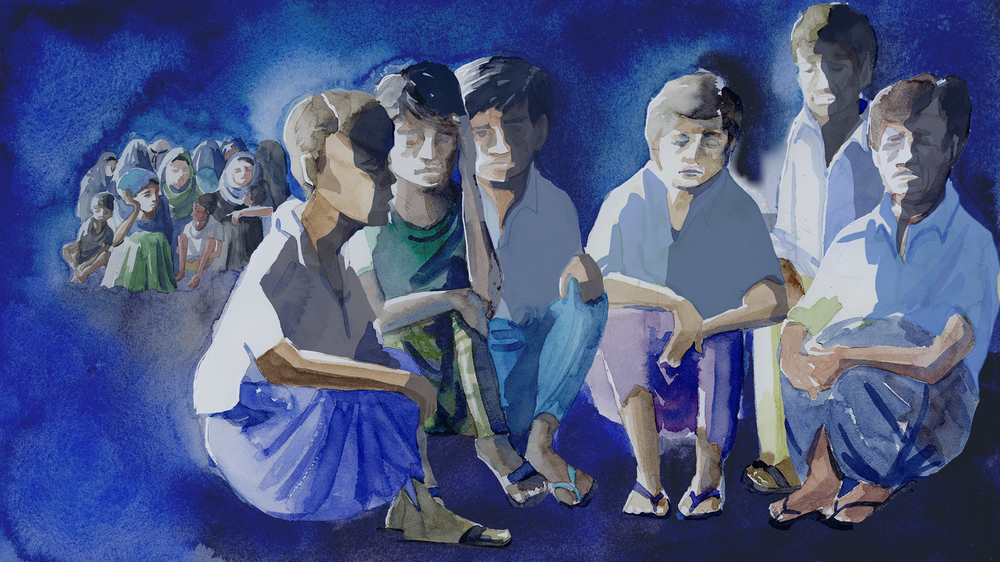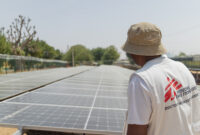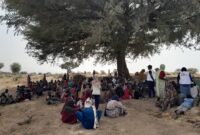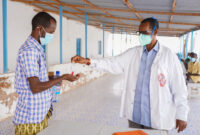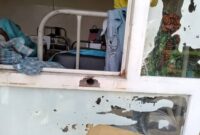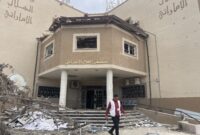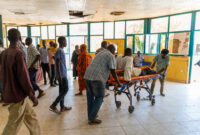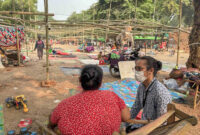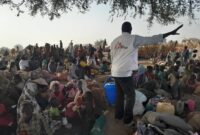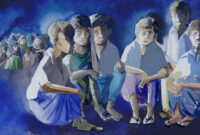[Series] Living in Myanmar: Renewed fighting in Rakhine leads Rohingya to live in constant fear
Since the 2021 military takeover of Myanmar, people across the country have faced relentless challenges. Clashes between armed groups have erupted countrywide, impacting people’s everyday lives.
In this second part of this two-part series by Doctors Without Borders/Médecins Sans Frontières (MSF), Rohingya people talk about the life-threatening humanitarian situation in Rakhine state, where fighting between the Myanmar Armed Forces/Myanmar military and the Arakan Army (AA) has intensified since November 2023.
Read first part of the series>>
Severe restrictions on humanitarian access
Sittwe, the capital of Rakhine state in western Myanmar, is about an hour’s flight from Myanmar’s largest city, Yangon. Until last November, MSF teams here provided a wide range of essential healthcare to local communities with limited access to medical services, including Rakhine, Rohingya and other ethnic minorities. These services included basic healthcare, care for survivors of sexual and gender-based violence, health education and psychosocial support.
MSF also facilitated lifesaving emergency referrals, transporting patients in need of more specialised care to hospitals. For Rohingya people, a Muslim minority who have long been persecuted, and who have been stateless since being stripped of their citizenship in 1982, this was a crucial service, due to the restrictions imposed on all aspects of their lives, including their freedom of movement. Without freedom of movement, reaching a hospital can be very challenging.
To reach those people with the greatest difficulties accessing healthcare, MSF provided its medical services through 25 mobile clinics which visited locations across the state.
However, from November 2023, the breakdown of a year-long ceasefire brokered in November 2022 and the resurgence of conflict forced MSF to suspend its medical and humanitarian activities in northern Rakhine state and to scale down its activities across much of central Rakhine. Since then, movement restrictions, lack of permission to transport medical supplies, and restrictions by authorities on our ability to facilitate emergency referrals for patients have severely hampered our delivery of services to people who were almost exclusively reliant on MSF for their healthcare. In the seven months from September 2023 to April 2024, MSF’s monthly outpatient consultations in Rakhine state plummeted from 6,684 to just 236.
In June 2024, MSF was granted permission to resume mobile clinics in Sittwe township for the first time in eight months, leading to an increase in outpatient consultations to 1,750 by early July. However, our access to all other townships in Central and Northern Rakhine state, including Buthidaung, Maungdaw, MraukU and Pauktaw, remains cut off.
In Sittwe, an estimated 70 per cent of the urban population has fled in anticipation of a further escalation of the conflict, most of them ethnic Rakhine. Many Rohingya, who live in fenced-off camps or villages, have been forced to remain in the area due to tight movement restrictions imposed on them. At the same time, Sittwe has seen the arrival of newly displaced people, including ethnic Rakhine from villages within Sittwe township, as well as people fleeing violence in Northern Rakhine. However, only those Rohingya with a national registration card, issued before or after they were stripped of their citizenship, were able to flee to Sittwe. The fighting has engulfed much of the state, forcing hundreds to leave behind their hometowns in search of safety. “Not only are the Rohingya once again caught in this conflict, but also ethnic Rakhine people are being exposed to extreme violence,” says an MSF staff member.
Continued fighting puts Rohingya at most risk of violence
As the fighting has intensified, the most vulnerable group of people are the stateless Rohingya caught up in the violence with no means of escape.
“In my entire life, I have never felt free for a single second. I don’t know what freedom is,” says a Rohingya who managed to flee to Sittwe. “In Myanmar, we Rohingya must live in constant fear.” Even those who sought safety in Sittwe do not feel safe. “If the fighting and persecution in Buthidaung and Maungdaw spread to Sittwe, we’ll have no choice but to flee again, to Bangladesh, or elsewhere. We must do whatever it takes to save our lives.”
Several Rohingya spoke of attacks in civilian areas. “People sought refuge in hospitals, schools and police stations. But even if they fled, they would end up in areas controlled by one side or the other, unable to escape the attacks.”
Reports of sexual violence committed by warring forces have also emerged. “Three women who fled from northern Maungdaw were raped by eight men,” says a Rohingya, recounting the story of a woman he met during his escape from Maungdaw. Others report hearing that many women were shot or killed after being raped.
A Rohingya man who managed to escape the clashes in northern Buthidaung recounted his experience of being forcibly conscripted: “There were about 30 Rohingya soldiers there. The military only wanted to use us as frontline soldiers. We were given almost no food.”
Although he had no intention of joining the military, he was threatened with detention and torture if he refused. “We had no choice,” he said.
Urgent need to restore people’s access to healthcare
In early July, MSF staff in Sittwe loaded medicines and supplies into a vehicle and headed to a clinic in Aung Mingalar quarter. This was MSF’s second mobile clinic since activities resumed eight months after the conflict erupted again in Rakhine. At Aung Mingalar, hundreds of patients quickly filled the waiting room. Dozens of Rohingya and Rakhine women waited their turn for a consultation in the maternity ward, illustrating the unmet medical needs while services could not run. However, MSF has been unable to resume activities at any of its other 24 mobile clinic sites across Rakhine.
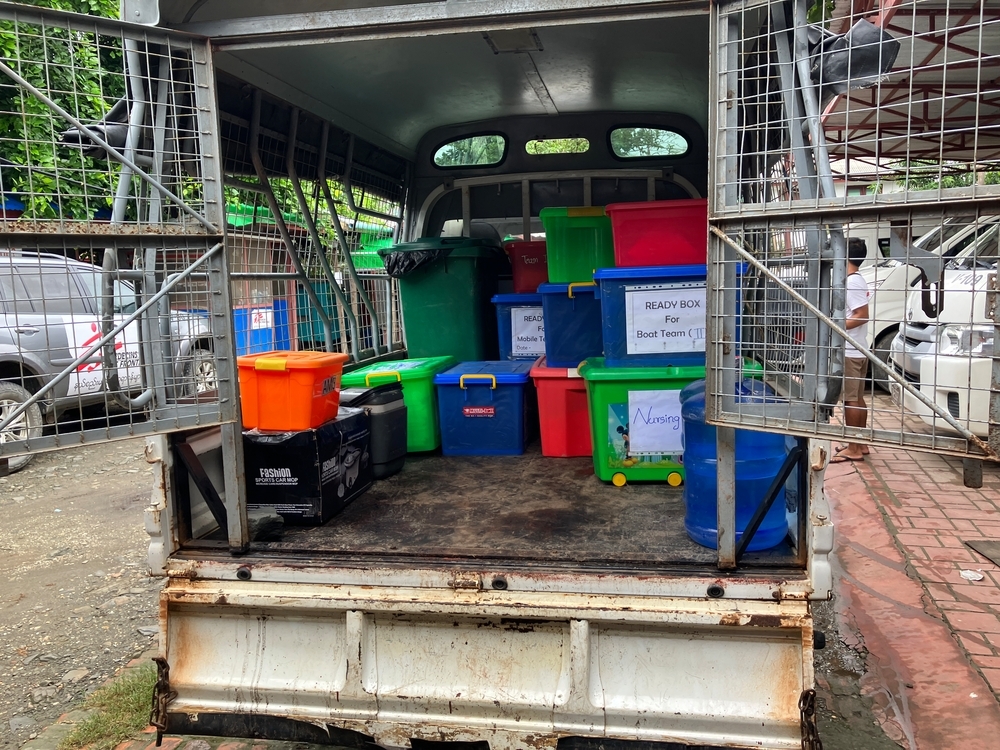
Reports of an outbreak of acute watery diarrhea in Sittwe have made the need to expand healthcare activities even more pressing. MSF has been able to restart activities in Sittwe township even if severe medical supply challenges persist – but restoring access to healthcare for the most vulnerable communities across Rakhine state is a matter of urgency to prevent further unnecessary loss of life.
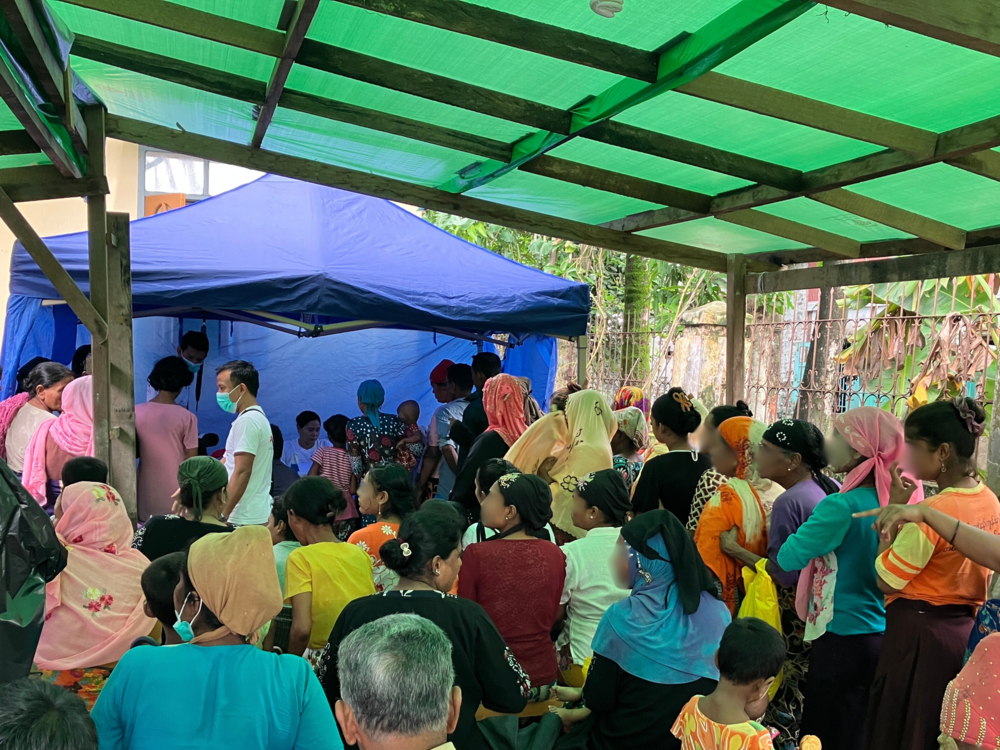
MSF is committed to continuing its activities in Rakhine state and remains ready to resume medical activities as soon as possible. MSF is calling on all parties to the conflict to comply with international humanitarian law and allow people to leave for safer areas, while reiterating that medical facilities, healthcare workers and patients must be respected and protected.
